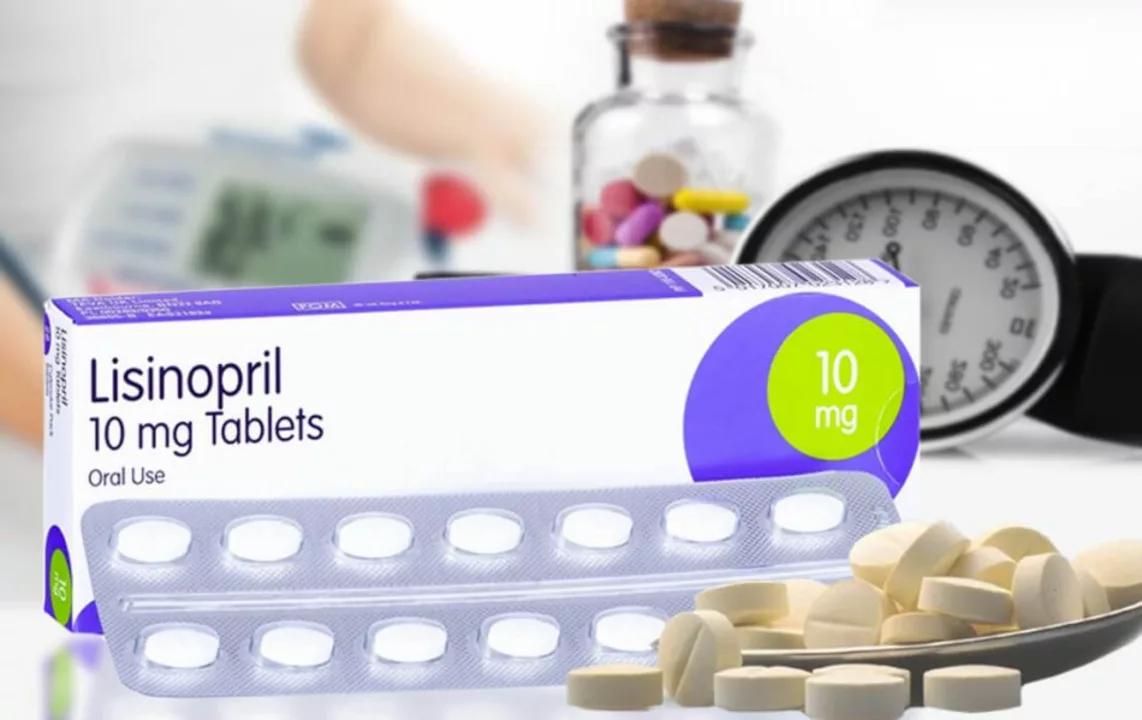Lisinopril‑HCTZ: What It Is and Who It Helps
Lisinopril‑HCTZ is a single pill that mixes an ACE inhibitor (lisinopril) with a thiazide diuretic (hydrochlorothiazide). Doctors prescribe it to lower blood pressure by relaxing blood vessels and helping your body get rid of extra salt and water. Combining the two drugs in one tablet makes it easier to take and often controls blood pressure better than either drug alone.
Common brand or generic strengths include 10/12.5 mg, 20/12.5 mg, and 20/25 mg (lisinopril/hydrochlorothiazide). Most people take it once a day, usually in the morning because HCTZ can increase urine output. If your doctor adjusts doses, expect follow-up labs shortly after changes.
What to Watch For: Side Effects and Warnings
Some side effects are mild and go away after a few days: dizziness, lightheadedness (especially when standing), headache, or more frequent urination. A dry cough can develop from lisinopril. Stop the drug and call your doctor if you notice swelling of the face, lips, tongue, or throat—these are signs of angioedema and need urgent care.
Other important concerns: changes in kidney function and electrolyte shifts. ACE inhibitors can raise potassium; thiazide diuretics can lower potassium. Your doctor will check blood tests (creatinine and electrolytes) before starting and about 1–2 weeks after a dose change. Don’t take lisinopril‑HCTZ if you’re pregnant or planning pregnancy—the drug can harm the fetus.
Practical Tips, Interactions, and Monitoring
Take the pill at about the same time each morning. Stand up slowly after sitting or lying down to avoid dizziness. Don’t stop the medicine suddenly—if you feel unwell or want to stop, talk to your prescriber first.
Watch interactions: avoid combining it with potassium supplements or salt substitutes high in potassium unless your doctor approves. Be cautious with NSAIDs (like ibuprofen), which can blunt blood pressure control and affect kidneys when used regularly. Tell your doctor about lithium, other blood pressure drugs, or diuretics you already take—some combos need dose changes or closer monitoring.
Expect routine checks: blood pressure readings, blood tests for kidney function and electrolytes, and periodic follow-ups to confirm the dose is right. Lifestyle changes—cutting sodium, keeping active, and avoiding heavy alcohol—help the medication work better and may reduce how much drug you need.
If you buy meds online, use a licensed pharmacy and keep your prescriptions current. If anything about your medicine or symptoms worries you, call your healthcare provider. Lisinopril‑HCTZ is effective for many people, but safe use depends on the right dose, monitoring, and clear communication with your medical team.
Lisinopril-HCTZ and Interactions with Over-the-Counter Medications
As a blogger, I recently came across some important information about Lisinopril-HCTZ and its interactions with over-the-counter medications. It turns out that combining Lisinopril-HCTZ with certain over-the-counter drugs can cause adverse effects or reduce the effectiveness of your medication. Some common OTC drugs to be cautious with include NSAIDs, cold and flu remedies, and potassium supplements. Always consult with your healthcare provider before taking any new medications, even if they are available without a prescription. Remember to stay informed and prioritize your health!

